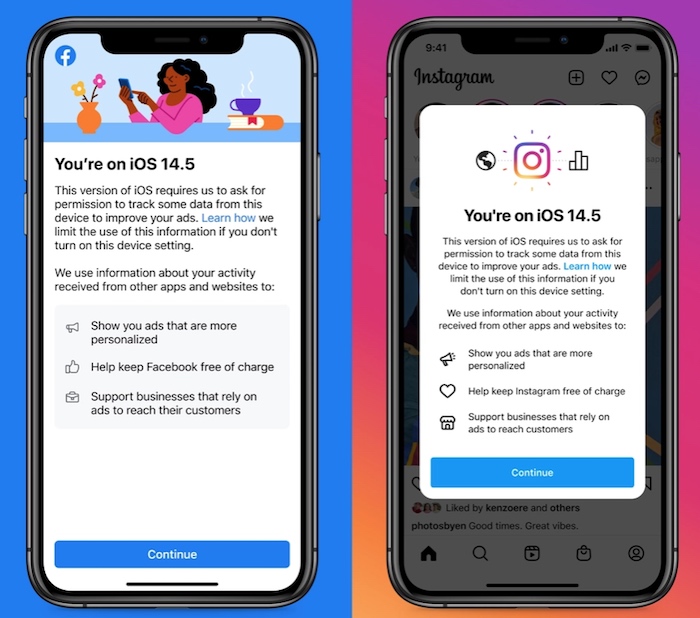New Data Shows How Devastating Apple's New Anti-Tracking Feature Is For Facebook
Apple late last month introduced iOS 14.5, an update with all sorts of intriguing new features, including dozens of new emojis, more diverse Siri voice options, support for AirTags, and more.
The most notable iOS 14.5 feature, or at least the one that has garnered the most attention, is a privacy tool dubbed App Tracking Transparency. As the name suggests, App Tracking Transparency allows users to control which apps can track their activity "across other companies' apps and websites for ads or sharing with data brokers."
Not surprisingly, Facebook views Apple's App Tracking Transparency feature as a threat to its underlying business to the extent that it hinders the social networking giant's ability to serve up targeted ads to its billion of users.
In fact, Facebook, in the wake of the iOS 14.5 release, published a blog post arguing that Apple's update will ultimately hamper small and local businesses who rely upon target-based advertising.
At Facebook we use data to provide personalized ads, which support small businesses and help keep apps free. Starting today, Apple will require apps that engage in what it calls "tracking" to ask permission when using information from apps and websites owned by other companies to personalize or measure ads. This will happen through a prompt designed by Apple that discourages people from giving their permission, and provides little detail about what this decision means.
The iOS prompt referenced above simply asks users if they'd be okay with a particular app tracking their activity across other apps and websites. Early data, however, suggests that a vast majority of users are not opting-in to app tracking.
According to a recent report from Flurry Analytics, only 3% of iOS users have opted-in to app tracking, which is the exact scenario Facebook was dreading when Apple first unveiled the feature at WWDC last year.
AppleInsider adds:
Interestingly, Flurry's data suggests people are actively opting out of tracking requests. The company found only 4% of iOS 14.5 users have the "Allow Apps to Request to Track" option in settings disabled. That figure drops to 2% in the U.S. Turning the "Allow Apps to Request to Track" selection off automatically restricts IDFA data access and precludes apps from asking permission track.
In light of the above, Facebook is vigorously trying to do everything in its power to convince users to opt-in to app tracking. As evidenced below, this is the warning that Facebook and Instagram users on iOS 14.5 are greeted with. Note Facebook's effort to equate personalized ads with keeping both apps free to use.

Incidentally, Apple doesn't seem terribly concerned in the slightest about how iOS 14.5 will impact Facebook's underlying business. To this point, Tim Cook, during an appearance on Kara Swisher's Sway podcast was asked directly about how the App Tracking Transparency feature might affect the social networking giant.
"I'm not focused on Facebook, so I don't know," Cook said.
